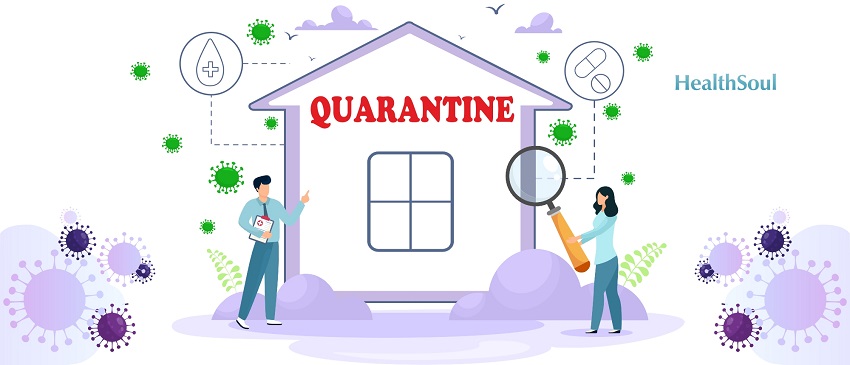Quarantine & Psychological Effects: Understanding Its Impact & How to Reduce It

The current events of the world have resulted in something that many of us are entirely new to—isolation. Due to the coronavirus outbreak that began in December of 2019, many countries have asked people who are infected—or who could be infected from coming in contact with the infection—to isolate themselves at home or to turn themselves over to a dedicated quarantine facility.
The concept of quarantine is a complex one—on one hand, in order to reduce the spread and the impact of the disease, it’s crucial. But on the other hand, quarantine and isolation can cause negative psychological effects that can have long-term repercussions for those undergoing it.
Understanding how quarantine can affect a person, as well as how it can contribute to their long-term psychological and mental health, is vital. Research and studies show that post-traumatic stress symptoms, anger, and more can be caused by long periods of quarantine with stressors like infection fears, frustration, boredom, inadequate supplies, financial loss, and stigma dramatically affecting mental health.
What is Quarantine, Exactly?
Isolation, social distancing, and quarantine are all different forms of separation, though lately, they’ve been used interchangeably. Quarantine is the separation and restriction of movement or those who have potentially been exposed to a contagious disease to monitor and review them to see if they catch the disease. This practice helps to reduce the risk of them infecting other people.
Isolation, on the other hand, is the separation of people who have been diagnosed with a contagious disease from those who are not sick.
Due to the coronavirus disease pandemic and outbreak, many have been self-quarantining and entire cities (in China) have been effectively placed under mass quarantine.

The Psychological Effects of Quarantine
In five separate studies that analyzed psychological effects for people quarantined with those who were not quarantined, it was found that the psychological impacts of quarantine is wide-ranging, substantial, and can even be long-lasting—it is, after all, in some form, denying people of their liberty for the wider public good (a contentious practice).
Though there is mixed evidence of how quarantine would psychologically impact people, it is suggested that people could deal with symptoms of acute stress disorder, psychological distress and disorder, emotional disturbance, depression, stress, low mood, irritability, insomnia, PTSD, and more.
As a note, these studies do not suggest quarantine shouldn’t be used as it’s possible the psychological effects of not quarantining could end up being far worse (and the spread of a disease could be far worse, too). That being said, quarantining needs to be handled carefully and deliberately. If quarantine is a must, then it’s suggested that officials should take every single measure to ensure the situation as tolerable as possible. It’s possible to achieve this through clear and consistent communication (telling people what is happening and why it’s happening), providing meaningful activities, ensuring basic supplies are always available, and reinforcing the sense of altruism that people should be feeling.


